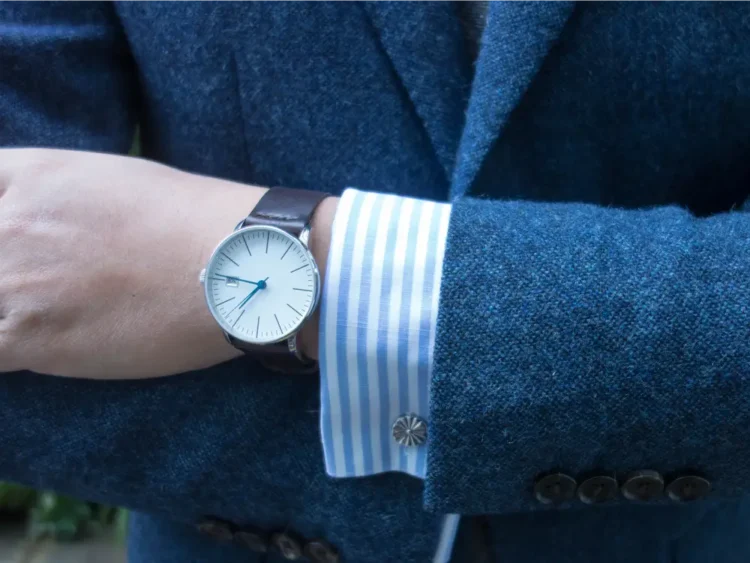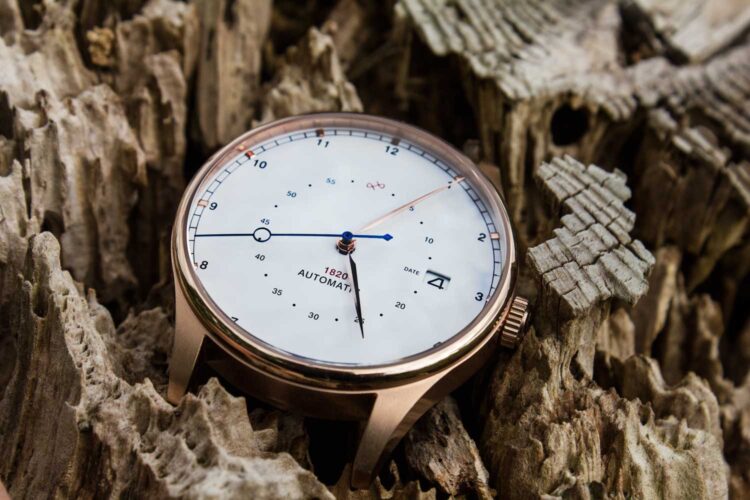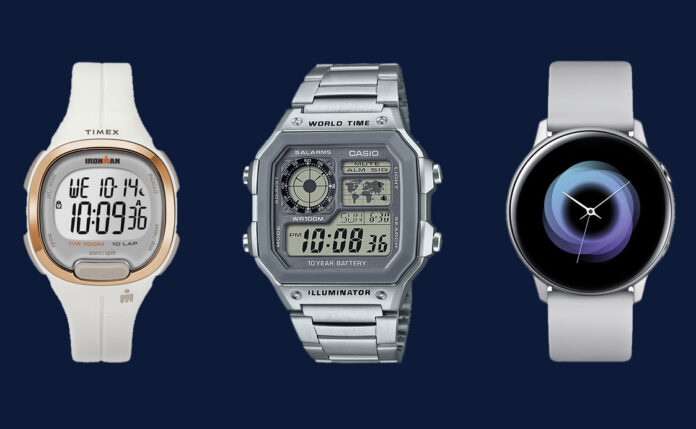Watches have been a popular accessory for centuries, serving both as a fashion statement and as a tool for timekeeping. As time and technology have progressed, watches have evolved as well. While classic watches retain their timeless appeal, modern watches boast advanced technological features that cater to the needs of the current generation.
In this article, we’ll be doing a deep dive into the world of classic and modern watches. We’ll be exploring the benefits and drawbacks of each type, so that by the end of the article, you’ll have a good idea of which one would work best for you based on your needs and preferences.
Classic watches

Classic watches are timepieces that have been around for decades, if not centuries. They are characterized by their timeless appeal, simplicity, and durability. Classic watches are usually made from high-quality materials, such as gold, silver, and stainless steel, and are designed with an elegant, traditional look.
One of the defining features of classic watches is their longevity. These watches are built to last, with many being passed down through generations as family heirlooms. Classic watches are often more expensive than their modern counterparts, but their durability and longevity make them a worthwhile investment.
Another advantage of classic watches is their timeless appeal. They are designed with classic, simple lines that never go out of style. Classic watches are versatile and can be worn with almost any outfit, from a casual T-shirt and jeans to a formal suit and tie.
However, classic watches do have their drawbacks. They lack many of the technological features that modern watches offer, such as GPS tracking, heart rate monitoring, and smartphone connectivity. Classic watches can also be expensive to maintain and repair, as replacement parts for some models may be difficult to find.
Despite these disadvantages, classic watches are a popular choice for many watch enthusiasts. They embody the tradition and craftsmanship of the past and offer a sense of timelessness that is hard to find in modern watches.
Modern watches

Modern watches represent the cutting edge of watch technology, offering advanced features that cater to the needs of the current generation. They are designed with a sleek, futuristic look and are often made from lightweight materials such as aluminum, titanium, or plastic.
One of the most significant advantages of modern watches is their technological features. Many modern watches come equipped with GPS tracking, heart rate monitoring, and smartphone connectivity, making them an excellent choice for athletes and fitness enthusiasts. They also offer a range of other features, such as weather forecasting, voice assistants, and mobile payments, making them more versatile than classic watches.
Another advantage of modern watches is their convenience. They are often lighter and more comfortable to wear than classic watches, making them an excellent choice for everyday wear. They are also easier to maintain and repair, with replacement parts and accessories readily available.
However, modern watches have their drawbacks. They tend to have a much shorter lifespan than classic watches, and their technological features can quickly become outdated. Some people may also be concerned about the privacy and security implications of using smartwatches and fitness trackers.
Despite these drawbacks, modern watches remain a popular choice for many consumers. They offer a range of features that cater to the needs of the current generation and provide a more convenient and comfortable wearing experience.
How do classic watches compare to modern ones

When considering classic and modern watches, there are several pros and cons to consider.
Classic watches are known for their durability and longevity. They are built to last and are often passed down through generations as family heirlooms. Their timeless appeal and traditional design make them versatile and suitable for a wide range of occasions. However, they lack many of the technological features of modern watches, and replacement parts can be expensive and difficult to find.
On the other hand, modern watches offer a range of advanced features, such as GPS tracking, heart rate monitoring, and you can easily connect them to most smartphones and similar gadgets. They are often more convenient and comfortable to wear than classic watches and are designed with a sleek, futuristic look. Keep in mind that their modern technological features can quickly become outdated, and some people may be concerned about privacy and security implications.
In terms of pricing, classic watches are generally more expensive than modern watches, but they hold their value over time and can be seen as a worthwhile investment. Modern watches are often more affordable and accessible, but their technological features may require more frequent upgrades.
When it comes to maintenance and repair, classic watches can be costly and time-consuming to maintain, but they are built to last and can be repaired to their original condition. Modern watches, on the other hand, are easier to maintain and repair, but replacement parts may be less durable than those used in classic watches.
The choice between classic and modern watches mostly depends on personal preference and individual needs. Classic watches are best suited for those who appreciate traditional craftsmanship and timeless appeal, while modern watches are ideal for those who want the latest technological features and convenience.
Final thoughts
Choosing between classic and modern watches mostly comes down to personal preference and individual needs. Classic watches offer timeless appeal, traditional design, and durability, while modern watches boast advanced technological features, convenience, and a sleek, futuristic look. While classic watches may be more expensive and lack modern features, they hold their value over time and can be seen as an investment. On the other hand, modern watches may be more affordable and accessible, but their technological features may require frequent upgrades, or quickly become obsolete.
The choice between classic and modern watches ultimately depends on what the buyer is looking for in a timepiece. Those who prioritize tradition, craftsmanship, and longevity may prefer classic watches, while those who value technology, convenience, and modern design may prefer modern watches. In any case, both types of watches have their pros and cons, and it’s important to consider all factors before making a decision.







